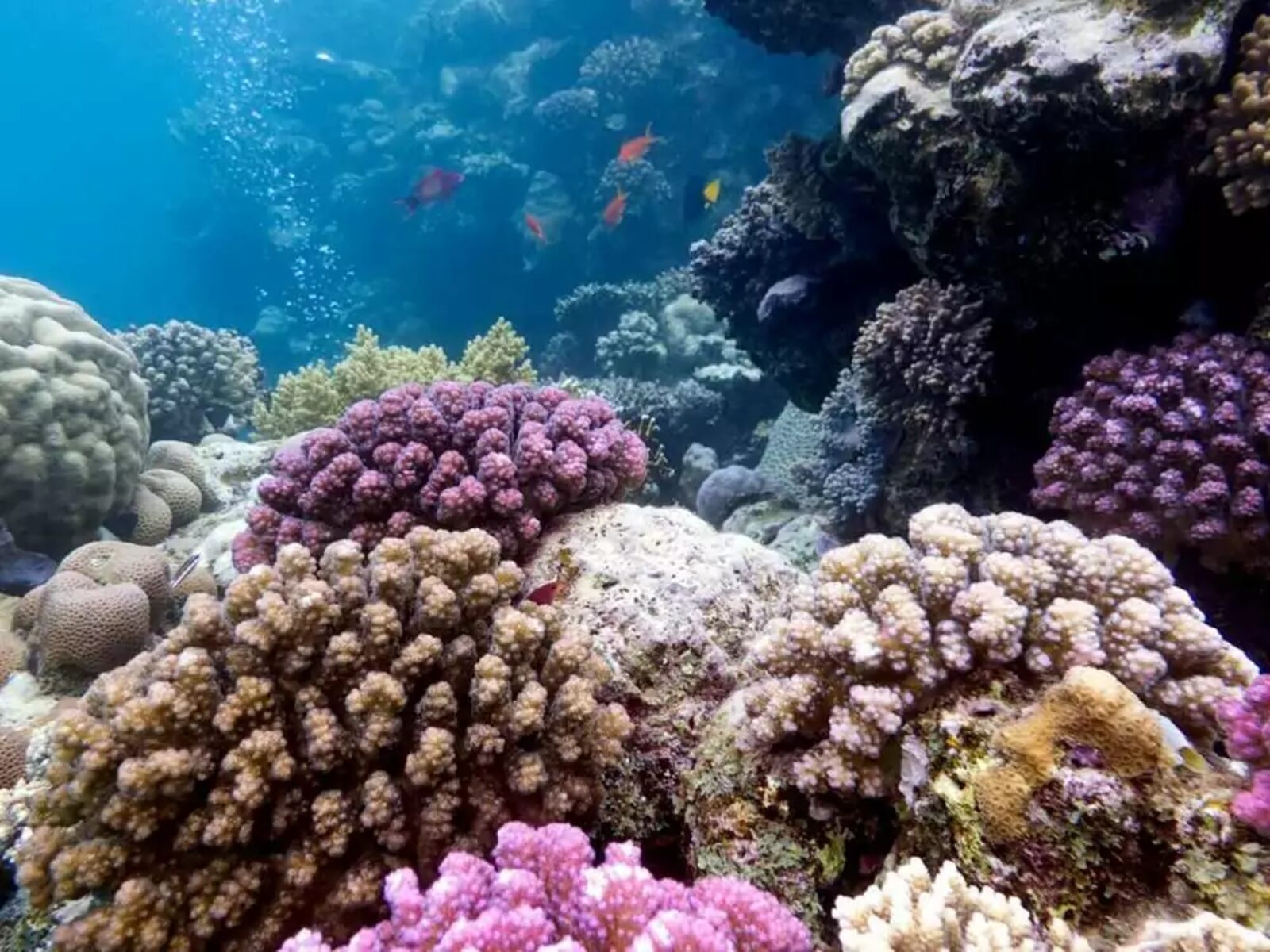
When it comes to natural wonders, few can compare to the breathtaking beauty of barrier reefs. In particular, the barrier reefs of Madagascar hold a special place in the hearts of nature enthusiasts and marine biologists alike. These magnificent formations, located off the coast of Madagascar in the Indian Ocean, are not only mesmerizing to behold but also harbor a wealth of biodiversity that is unmatched anywhere else in the world.
In this article, we will delve into the wonders of the barrier reefs of Madagascar and uncover 10 fascinating facts that make them truly remarkable. From the vibrant coral formations to the mesmerizing marine life that call these reefs home, you will discover the unique features that make the barrier reefs of Madagascar a must-visit destination for anyone with a passion for the natural world.
Key Takeaways:
- Madagascar’s barrier reefs are a biodiversity hotspot, home to unique coral species and diverse marine life. Conservation efforts are crucial to protect these delicate ecosystems for future generations to enjoy.
- The barrier reefs of Madagascar are not only a diving paradise but also serve as important research sites. Visitors can explore these underwater marvels while supporting sustainable tourism practices for the reefs’ preservation.
Diverse Ecosystem
The barrier reefs of Madagascar boast a remarkable level of biodiversity, making them one of the most diverse marine ecosystems on the planet. With over 600 species of coral, and a staggering variety of fish, crustaceans, and other marine life, these reefs provide a home to countless organisms.
World Heritage Sites
Not one, but three barrier reefs in Madagascar have been designated as UNESCO World Heritage Sites. These include the 1,200-kilometer-long Toliara Barrier Reef, the Nosy Be Barrier Reef, and the Radama Islands Barrier Reef. This recognition highlights the exceptional value of these reefs in terms of ecological significance and conservation.
Unique Coral Species
Madagascar’s barrier reefs are renowned for their unique coral species found nowhere else in the world. Scientists have identified several endemic coral species, which adds to the allure and scientific importance of these reefs. Preserving these unique species is crucial for the overall health of the global marine ecosystem.
Home to Whales
The waters surrounding the barrier reefs of Madagascar serve as a migration route and breeding ground for several species of whales. From humpback whales to sperm whales, these magnificent creatures can often be spotted in these nutrient-rich waters, adding to the enchantment and wonder of the Madagascar reefs.
Conservation Efforts
Recognizing the value and vulnerability of the barrier reefs, Madagascar has implemented strict conservation measures to protect these fragile ecosystems. Marine protected areas have been established, and sustainable fishing practices are promoted to ensure the long-term survival of the reefs and the species that depend on them.
Diving Paradise
The barrier reefs of Madagascar offer divers a paradise of underwater exploration. With crystal-clear waters, vibrant coral formations, and an abundance of marine life, diving enthusiasts from around the world flock to these reefs to witness their unparalleled beauty and experience the thrill of underwater adventures.
Unique Adaptations
Many organisms inhabiting the barrier reefs of Madagascar have developed unique adaptations to cope with the challenging conditions of the marine environment. From camouflaging techniques to specialized feeding mechanisms, these adaptations showcase the incredible resilience and ingenuity of the reef inhabitants.
Threats to the Reefs
While the barrier reefs of Madagascar are awe-inspiring, they are also facing numerous threats. Climate change, pollution, overfishing, and destructive fishing practices pose significant risks to the health and survival of these delicate ecosystems. Efforts are underway to mitigate these threats and ensure the long-term conservation of the reefs.
Important Research Sites
The barrier reefs of Madagascar serve as crucial research sites for scientists studying coral reef ecosystems. With their rich biodiversity and unique characteristics, these reefs provide invaluable insights into the functioning and adaptation of coral reefs, aiding in global conservation and understanding of these vital habitats.
Ecotourism and Sustainable Development
The barrier reefs of Madagascar contribute to the country’s ecotourism industry, attracting visitors who seek to explore and appreciate the wonders of these underwater marvels. Sustainable tourism practices are emphasized to minimize the impact on the reefs, ensuring that future generations can continue to admire and cherish their beauty.
Conclusion
In conclusion, the barrier reefs of Madagascar are truly a wonder of nature. With their vibrant coral formations, diverse marine life, and unique ecosystem, these reefs provide a mesmerizing underwater experience. The fact that they are home to rare and endangered species, such as the coelacanth and the Madagascar jewel fish, only adds to their significance.
Not only are the barrier reefs of Madagascar a hotspot for biodiversity, but they also play a crucial role in coastal protection and contribute to the livelihoods of local communities. It is essential to protect and preserve these reefs for future generations to enjoy and for the overall health of our planet’s marine ecosystems.
Exploring the barrier reefs of Madagascar is an unforgettable experience, allowing visitors to witness the beauty and complexity of this underwater world. Whether you’re a nature enthusiast, a scuba diving aficionado, or simply someone seeking a unique travel adventure, the barrier reefs of Madagascar offer a captivating journey into the fascinating marine world.
FAQs
1. What is a barrier reef?
A barrier reef is a type of coral reef that forms parallel to the coastline, separated from land by a lagoon or channel. It acts as a natural barrier, providing protection to coastal areas from waves and erosion.
2. What makes the barrier reefs of Madagascar unique?
The barrier reefs of Madagascar are known for their high biodiversity and unique marine life. They are home to a wide range of coral species, fish, and other marine organisms, many of which are endemic to the region. The reefs also host rare and endangered species, making them of great conservation importance.
3. Can I go scuba diving or snorkeling in the barrier reefs of Madagascar?
Absolutely! The barrier reefs of Madagascar offer excellent opportunities for scuba diving and snorkeling. There are several dive shops and resorts along the coastline that cater to divers of all levels of experience.
4. Are the barrier reefs of Madagascar affected by climate change?
Like many coral reefs around the world, the barrier reefs of Madagascar are facing threats from climate change, including rising sea temperatures, ocean acidification, and coral bleaching. Efforts are being made to monitor and conserve these reefs to minimize the impacts of climate change.
5. How can I contribute to the conservation of the barrier reefs of Madagascar?
There are several ways you can contribute to the conservation of the barrier reefs of Madagascar. You can support and participate in local conservation organizations and initiatives, choose responsible tour operators that adhere to sustainable practices, and spread awareness about the importance of preserving these valuable ecosystems.
Madagascar's barrier reefs are truly captivating, but there's so much more to explore in our oceans. Discover how coral bleaching affects marine life and what we can do to prevent it. Learn about marine protected areas like Chagos and their vital role in conservation. Finally, take a virtual dive into Aruba's underwater habitats and uncover the secrets of their thriving ecosystems. Each article offers a unique perspective on our incredible underwater world, so dive in and start exploring today!
Was this page helpful?
Our commitment to delivering trustworthy and engaging content is at the heart of what we do. Each fact on our site is contributed by real users like you, bringing a wealth of diverse insights and information. To ensure the highest standards of accuracy and reliability, our dedicated editors meticulously review each submission. This process guarantees that the facts we share are not only fascinating but also credible. Trust in our commitment to quality and authenticity as you explore and learn with us.


